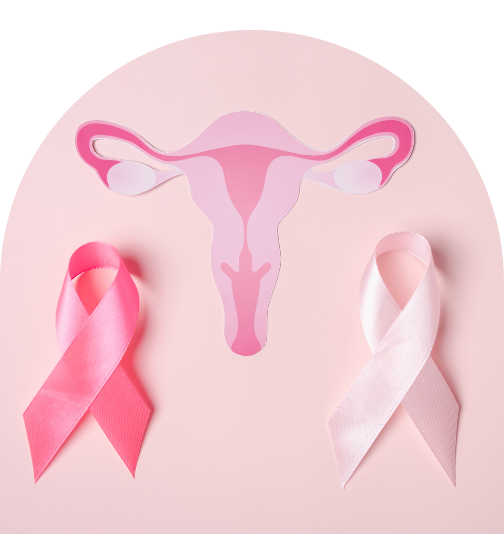Balancing Hormones, Nurturing Emotions
September is known as PCOS Awareness Month, so I am dedicating this week’s blog to talk about this condition in hopes of bringing awareness to our community and the related emotional toll it has on women and families around us.
Polycystic Ovary Syndrome (PCOS) is more than just a physical condition. It’s an intricate web of emotions, struggles, and victories that women with ovaries bravely face. The path is marked by hormonal ebbs and flows, unexpected changes, and an unyielding desire to overcome.
Characterized as a hormonal disorder that affects about 10% of women, it is especially pernicious during reproductive years. A range of signs and symptoms are present that can vary widely among individuals. If you’ve never heard of PCOS, then here are some of the most important things to know:
- Hormonal Imbalance: PCOS is characterized by an imbalance in sex hormones, particularly an excess of androgens (male hormones) such as testosterone. This hormonal imbalance can lead to various symptoms and complications.
- Ovulation Dysfunction: One of the hallmarks of PCOS is anovulation, which means that the ovaries may not regularly release eggs. This can result in irregular menstrual cycles or even the absence of menstruation.
- Polycystic Ovaries: Despite the name, not all individuals with PCOS have multiple cysts on their ovaries. The term “polycystic” refers to the appearance of the ovaries on an ultrasound, where they might show multiple small follicles.
- Symptoms: Common symptoms of PCOS include irregular or absent periods, heavy or prolonged periods, acne, excessive facial and body hair growth (hirsutism), and hair thinning or baldness. Weight gain and difficulty losing weight are also frequently associated with PCOS.
- Metabolic Issues: PCOS is often associated with insulin resistance, a condition in which the body’s cells do not respond effectively to insulin. This can lead to high levels of insulin in the blood, potentially increasing the risk of type 2 diabetes and other metabolic issues.
- Fertility Challenges: Anovulation can lead to difficulties conceiving for individuals with PCOS. However, many people with PCOS can still become pregnant with appropriate medical intervention.
- Long-Term Health Risks: People with PCOS are at a higher risk for certain health problems, including type 2 diabetes, high blood pressure, heart disease, and endometrial (uterine lining) cancer due to irregular menstrual cycles and unopposed estrogen exposure.
- Diagnosis: PCOS is typically diagnosed based on a combination of symptoms, medical history, physical examination, and blood tests to measure hormone levels. An ultrasound may also be performed to check for ovarian cysts.
The Unseen Battle: Unraveling PCOS Emotions
PCOS isn’t just about physical symptoms; it’s an emotional journey that can take us to uncharted territories within ourselves. The hurdles faced by women with PCOS are as diverse as the symptoms themselves:
- Body Image and Self-Esteem: Gazing at the mirror, we might find ourselves questioning the reflection looking back at us. The changes in appearance, from weight fluctuations to acne and hirsutism, can create a silent battle with our own self-esteem.
- The Unpredictable Cycle: A period should be a natural rhythm, but for those with PCOS, it can feel like a game of chance. Irregular or absent periods can make us question the harmony of our bodies and cast a shadow of doubt over our fertility.
- Turbulent Emotions: The hormonal symphony within can create emotional whirlwinds. From inexplicable mood swings to heightened sensitivities, the emotional rollercoaster is real and can leave us feeling vulnerable.
- Fear and Uncertainty: The cloud of uncertainty about future health and the heightened risk of conditions like diabetes and cardiovascular disease can loom overhead, casting a shadow of fear.
- Fertility Dreams and Disappointments: The yearning for motherhood is a song sung deep within, but PCOS sometimes adds unexpected pauses to the melody. Struggling to conceive can lead to heartache, frustration, and a silent longing that only a few truly understand.
If you would like our support to walk through the process step by step, we are here for you! Watch our free, on-demand masterclass here and take the action step to apply to work with us. We’ve helped countless couples like you succeed in optimizing their fertility, even when they are starting a family a little later in life.
Finding Resilience in Functional Medicine
Amidst the emotional storm, functional medicine emerges as a source of hope, offering a personalized approach to navigate the complex terrain of PCOS:
- Personalized Healing: As a Functional Medicine MD, I recognize that each journey is unique. In our groups, we listen to your story, understand your struggles, and create a roadmap tailored to you.
- Creating Nutritional Balance: Food is not just sustenance; it can be a powerful tool in nurturing your body. Our recommendations for functional medicine encourage you to eat an anti-inflammatory, balanced diet that supports both hormonal equilibrium and emotional well-being.
- Harmonizing Hormones: Functional medicine focuses on balancing hormones naturally. Through lifestyle changes, targeted supplements, and holistic strategies, it aims to bring harmony to your body’s internal orchestra.
- Mind-Body Connection: Stress, a common companion of PCOS, is addressed through stress-reduction techniques like meditation, yoga, and mindfulness. This helps not only with emotional balance but also with hormone regulation. That’s why our program includes a Mind Body coach to teach you the tools for managing stress.
- Progressive Support: Functional medicine is not a one-size-fits-all approach. It’s a dynamic journey that adapts as you progress, providing the support you need at every turn.
Family Planning with PCOS
Before asking the question, the answer is “Yes, many women with PCOS can get pregnant…” but it may be more challenging for some due to irregular ovulation and hormonal imbalances associated with the condition. PCOS can lead to anovulation (lack of ovulation), which can affect a woman’s ability to conceive naturally. However, with functional medicine in their back pocket, many women with PCOS are able to achieve pregnancy.
Here are a few key points to consider:
Lifestyle changes, including maintaining a healthy weight, adopting a balanced diet, engaging in regular physical activity, managing stress, and getting adequate sleep, can all play a role in improving fertility for women with PCOS. Additionally, addressing insulin resistance through dietary changes, supplement regimes, and exercise can also improve ovulation and increase the chances of conception.
It’s important to have realistic expectations and patience when trying to conceive with PCOS, as the process might take longer for some individuals. If you’re having difficulties getting pregnant and suspect PCOS might be a factor, or if you have been diagnosed with PCOS and are planning to conceive, you’ve found the right place! At Reimagined Fertility, we help women who struggle to conceive naturally. We’ve seen an 80% success rate in helping them get pregnant with our 4R Fertility Formula™.
Embracing the Journey
Dear warriors of PCOS, your journey is one of resilience, courage, and strength. Emotions may ebb and flow like tides, but within you lies an unwavering spirit. As you navigate the complex landscape of PCOS, remember that you are not alone.
Lean on support groups, online communities, and healthcare professionals who understand your journey. Celebrate the small victories, whether they’re in the form of a balanced meal, a moment of serenity, or a heart-to-heart conversation.
- PCOS Awareness Month official site
- Tracking ovulation with PCOS (using our recommended Tempdrop BBT thermometer)
- 13 Famous celebrities who have PCOS
Together, let’s honor the emotional hurdles you conquer and the strength you embody. Embrace functional medicine as a partner on this journey, offering tools to nurture your body, mind, and spirit. With each step, you move closer to a place of harmony and healing. Your journey is a testament to your resilience, and your story is a source of inspiration for those who walk alongside you.








